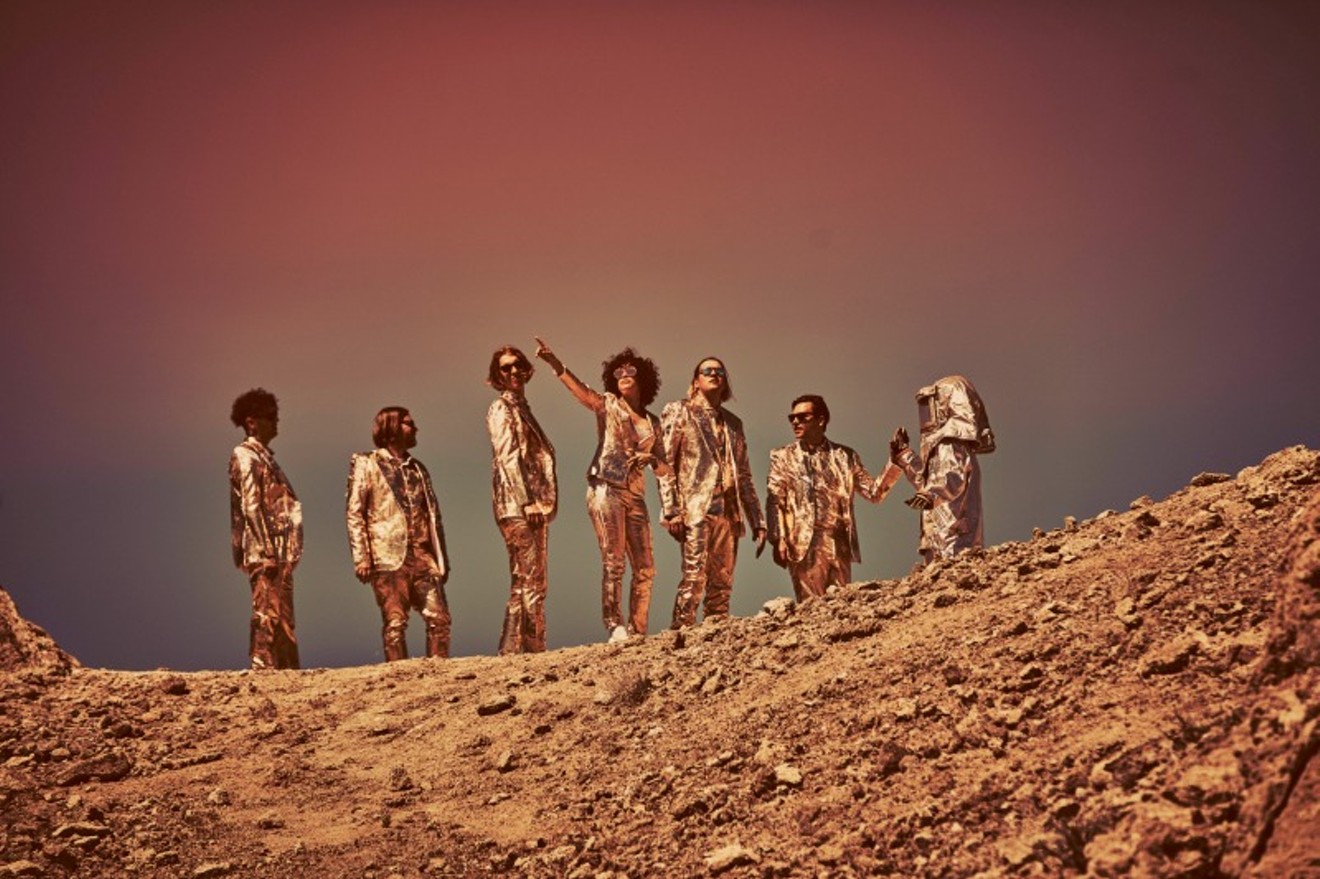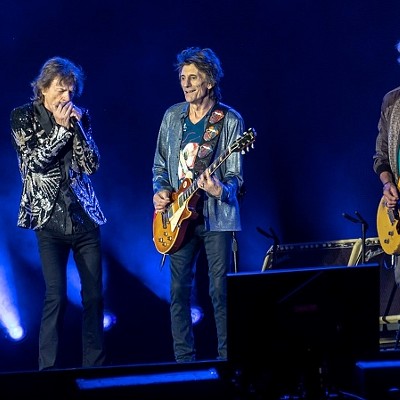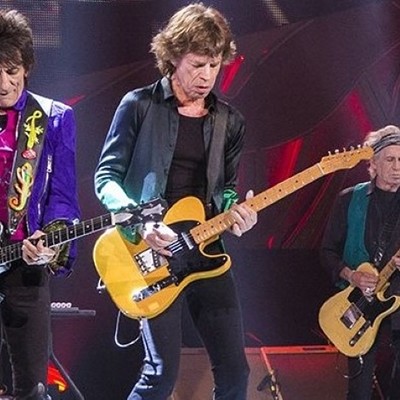Time has a way of offering perspective. Often when looking back on a certain point in time, one may view that time differently than when they were actually in that very point in time. That’s why this whole “embrace debate” mantra you see littered across sports and news television is somewhat silly; wouldn’t we be better off processing our thoughts before spouting opinions on everything from politics to NBA free agency? Certainly stands to reason.
Musical history is no different. The way we view a certain band, singer or movement in the moment is often contradictory to how we view it years later. This explains why former “things,” from the Macarena to the Spice Girls, are considered comical in hindsight. It’s the same reason many Chainsmokers fans will, years down the road, look back on their fandom of the group as a joke, mostly because the Chainsmokers are terrible.
So, yeah, how we view something at one point may very well differ at another point in time. Which brings us to Linkin Park. As you know doubt have heard, front man Chester Bennington died via hanging on Thursday. Ironically enough, his death took place on what would have been his dear friend Chris Cornell’s birthday (Cornell too died via hanging back in May.)
When an unfortunate passing takes place, particularly in music, it often provides a chance to reassess a particular musical era. That held true for the grunge era upon Cornell’s passing, and it holds equally true for 2000s-era rock with respect to Bennington and Linkin Park. After all, they were without question the most successful band to emanate from the nu-metal/rap-rock era of the 2000s. Hell, LP were still relevant some 17 years after their debut record, Hybrid Theory, stormed the radio and exploded into the mainstream.
But although we may look back on '90s rock and immediately think “grunge,’ the 2000s are a somewhat different animal altogether, in that it’s hard to associate the decade with one particular type of music. In short, does rock's 2000s era have no real definition whatsoever?
Personally, I will always associate the 2000s with early Linkin Park and other bands of that ilk. Call it rap-rock. Call it nu metal. Call it whatever you want, but that’s what jumps out when I think of the decade in music. Part of that stems from the beginning of that decade taking place when I was in college, when musical tastes are forming, but also because a number of multiplatinum acts arose from the decade's early years. Most notably, that particular genre certainly ranks among the most polarizing in music history.
Regardless of your opinion of bands like Linkin Park, Limp Bizkit, Korn, Deftones, and Slipknot, it’s likely you held one. Some derided these acts for being rap-rock mashups that didn’t do either particularly well. Others swore by, and still do, the nu metal genre as music that didn’t get near the credit it deserved.
The truth likely lies somewhere in the middle. Yes, bands like Linkin Park, early-era Korn and the Deftones were quality bands that were slighted by critics. And yes, Limp Bizkit – after its first two records, which hold up far better than some recall – cast a rather large dark cloud on rock in the early 2000s, mostly because Chocolate Starfish and the Hot Dog Flavored Water is one of the worst mass-produced albums of all time.
Of course, to limit our recollections of 2000s-era rock to rap-rock would be unfair. Instead, the decade produced a vast array of music, some good, some not. And, as mentioned above, how we view much of that music now may very well differ from how we viewed it at its commercial peak.
Take garage rock, for instance. There was a time when placing a “the” in front of your name and throwing your sound back to some sort of '70s punk vibe got you on the radio. That may explain why bands like The White Stripes, The Hives, The Vines and, most importantly, The Strokes all ruled the roost for a short time some 15 years ago.
These bands — which were going to save music, if you asked any rock critic at the time — have all largely come and gone, though a few never officially called it quits. Hell, The Strokes' debut record, Is This It?, was lauded upon its released in 2001. All these years later, it’s emblematic of an era that was supposed to rule the decade and instead stands as a footnote. Plus, even now the album gets by more on the fact that the Strokes “looked” the part of a rock band.
The list of other bands poised to carry the ball in the 2000s goes on. The Killers were the biggest thing going in 2004-05, but that all ended when their second record (the criminally underrated Sam’s Town) had the gall to take a different direction than debut Hot Fuss. Arcade Fire put out a pair of classics with 2004’s Funeral and 2007’s Neon Bible. But by the time the band got back to recording, 2010’s The Suburbs proved polarizing, and a lot of folks moved on. It didn’t help that the band’s most recent record, 2013’s Reflektor, aspired to something unique but mostly just sounded weird for its own sake. (Their next album, Everything Now, is due on Friday, so we'll see what happens.)
Looking back, the 2000s were a weird time for music in general. A number of genres – from pop to rap to rock – all rose to prominence simultaneously, which explains why MTV’s TRL would showcase a video from Britney Spears only to then cue up some Eminem or Korn. The internet – particularly Napster – changed the game. Most importantly, no particular genre stands out as the “thing” that helped define music in the 2000s.
Perhaps that’s the point, in that this decade will likely be remembered the same way. Seriously, Drake and Taylor Swift are talented and trend-setting, but to expect either to define a decade is pure lunacy. Music has changed, mostly because the music business has changed.
The 2000s are a decade without a musical identity. Whether that’s because tastes splintered to a point where no identify was possible, or simply because no genre was worthy of defining a decade, is almost inconsequential. Whether it Linkin Park, the Killers, Britney Spears, Arcade Fire, the Strokes, or some obscure band that never made anything of itself, the decade had a little something for everyone. It’s just sad it took the passing of one of the decade’s most prominent entertainers to remind us.
Support Us
Houston's independent source of
local news and culture
account
- Welcome,
Insider - Login
- My Account
- My Newsletters
- Contribute
- Contact Us
- Sign out

Unlike many of their early-'00s peers, Arcade Fire still has a spot in the contemporary musical conversation.
Photo by Guy Aroch/Courtesy of Nasty Little Man
[
{
"name": "Related Stories / Support Us Combo",
"component": "11591218",
"insertPoint": "4",
"requiredCountToDisplay": "4"
},{
"name": "Air - Billboard - Inline Content",
"component": "11591214",
"insertPoint": "2/3",
"requiredCountToDisplay": "7"
},{
"name": "R1 - Beta - Mobile Only",
"component": "12287027",
"insertPoint": "8",
"requiredCountToDisplay": "8"
},{
"name": "Air - MediumRectangle - Inline Content - Mobile Display Size 2",
"component": "11591215",
"insertPoint": "12",
"requiredCountToDisplay": "12"
},{
"name": "Air - MediumRectangle - Inline Content - Mobile Display Size 2",
"component": "11591215",
"insertPoint": "4th",
"startingPoint": "16",
"requiredCountToDisplay": "12"
}
,{
"name": "RevContent - In Article",
"component": "12527128",
"insertPoint": "3/5",
"requiredCountToDisplay": "5"
}
]
KEEP THE HOUSTON PRESS FREE...
Since we started the Houston Press, it has been defined as the free, independent voice of Houston, and we'd like to keep it that way. With local media under siege, it's more important than ever for us to rally support behind funding our local journalism. You can help by participating in our "I Support" program, allowing us to keep offering readers access to our incisive coverage of local news, food and culture with no paywalls.
Clint Hale enjoys music and writing, so that kinda works out. He likes small dogs and the Dallas Cowboys, as you can probably tell. Clint has been writing for the Houston Press since April 2016.
Contact:
Clint Hale
Trending Music
- Houston Concert Watch 4/24: Rolling Stones, Bad Bunny and More
- Top 10 Butt-Rock Bands of All Time
- An OG Beatles Fan Proves She Loved Them—Yeah, Yeah, Yeah!
-
Sponsored Content From: [%sponsoredBy%]
[%title%]

Don't Miss Out
SIGN UP for the latest
Music
news, free stuff and more!
Become a member to support the independent voice of Houston
and help keep the future of the Houston Press FREE
Use of this website constitutes acceptance of our
terms of use,
our cookies policy, and our
privacy policy
The Houston Press may earn a portion of sales from products & services purchased through links on our site from our
affiliate partners.
©2024
Houston Press, LP. All rights reserved.





